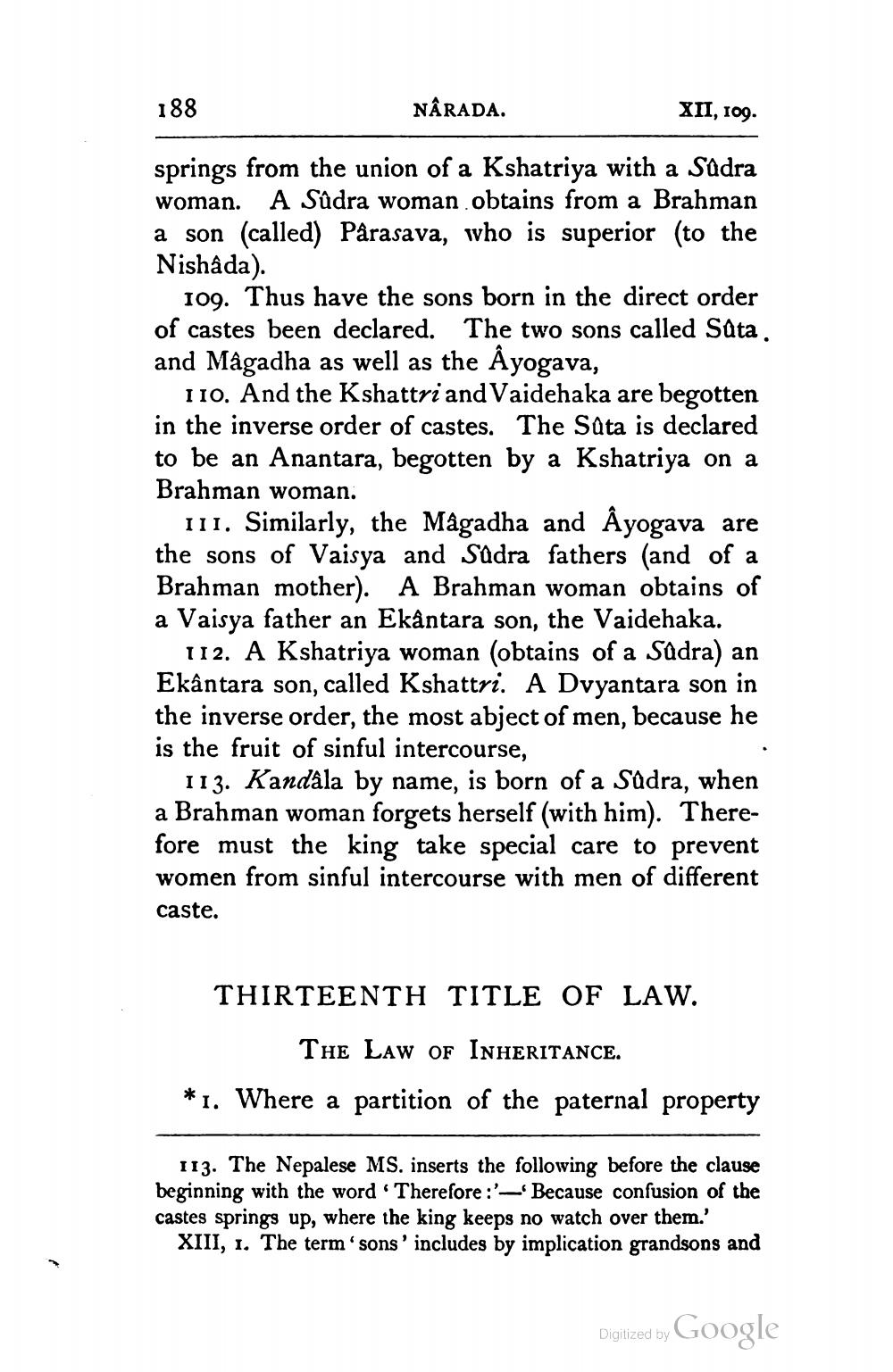________________
NARADA.
springs from the union of a Kshatriya with a Sûdra woman. A Sûdra woman obtains from a Brahman a son (called) Pârasava, who is superior (to the Nishâda).
109. Thus have the sons born in the direct order of castes been declared. The two sons called Sûta. and Magadha as well as the Âyogava,
110. And the Kshattri and Vaidehaka are begotten in the inverse order of castes. The Sûta is declared to be an Anantara, begotten by a Kshatriya on a Brahman woman.
III. Similarly, the Mâgadha and Ayogava are the sons of Vaisya and Sudra fathers (and of a Brahman mother). A Brahman woman obtains of a Vaisya father an Ekântara son, the Vaidehaka.
188
XII, 109.
112. A Kshatriya woman (obtains of a Sûdra) an Ekântara son, called Kshattri. A Dvyantara son in the inverse order, the most abject of men, because he is the fruit of sinful intercourse,
113. Kandala by name, is born of a Sûdra, when a Brahman woman forgets herself (with him). Therefore must the king take special care to prevent women from sinful intercourse with men of different caste.
THIRTEENTH TITLE OF LAW.
THE LAW OF INHERITANCE.
*
I. Where a partition of the paternal property
113. The Nepalese MS. inserts the following before the clause beginning with the word 'Therefore:'-'Because confusion of the castes springs up, where the king keeps no watch over them.'
XIII, 1. The term 'sons' includes by implication grandsons and
Digitized by Google




